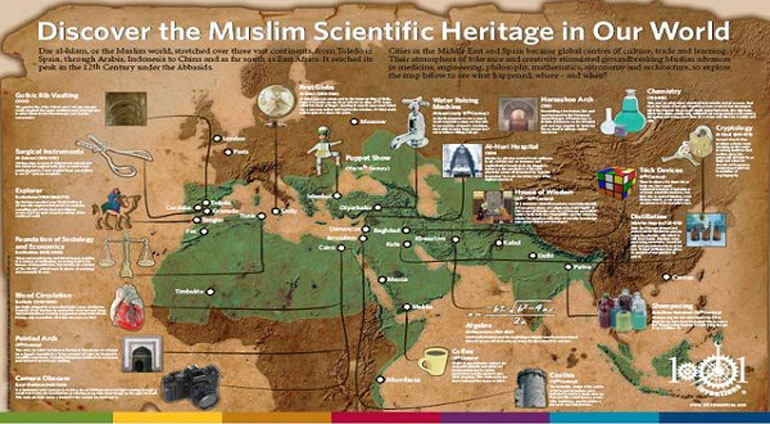This article is going to discuss the role of Muslim philosophers in the establishment of a new philosophical tradition which is considerably different from the other ancient philosophy.

Islamic philosophy has a very long history which has been established by Muslim philosophers throughout fourteen centuries of the Islamic history and it is still alive today. In fact Islamic philosophical tradition is not merely a continuation of the ancient Greek philosophy, rather it is deeply rooted in the Qur'an and Hadith, and Muslim philosophers broke with the Greek philosophy maintaining the new philosophical school and system.
Islamic philosophy is a prophetic philosophy [1] which differs considerably from the ancient Greek, Indian or Persian philosophical tradition; because, it is cultivated in the Islamic civilization and drives its principles, inspiration and many of the questions with which it has been concerned from the sources of Islamic revelation. All Islamic philosophers have lived and breathed in a universe dominated by the reality of the Qur'an and the Sunnah of the Prophet of Islam; even some of them would go to a mosque and pray when confronted with a difficult Problem. [2]
Quran as a revealed book has been accepted as the supreme source of ultimate knowledge by all Muslims including the Muslim philosophers; as a result it could be deduced from the mentioned points that Islamic reason and intellect is illuminated by the light of revelation. If we study Mulla Sadra's (the well-known Muslim Philosopher) comments upon the verses of the Holy Quran and Hadiths that contain the words such as reason (Aql) and rationality (ta'aqqul), we would see that what extend Muslim Philosophers made use of the Holy Quran and the traditions of the Prophet Mohammad (P) as well as his progeny (Ahl-ul-Bait). [3]
According to the Holy Quran one of the names or attributes of God, [4] Quran [5] and Prophets of Allah (J) [6] is Hakim (the wise), which is derived from the root hikmah means reason and intellectuality. In the chapter Logman, verse number 12, "hikmah" is considered as one of the best gifts and blessings of Allah (J) which has been given to the apostles and messengers of God. [7] "He giveth wisdom [hikmah] unto whom He will, and he unto whom wisdom is given, he truly hath received abundant good" [8]
Conclusively, it must be noted that the main source of the Islamic rationality and philosophical tradition is the Holy Quran and the tradition or the Holy Prophet (P) and his household (Ahl-ul-Bait). That is why no one can claim that Islamic philosophy is just a copy of the ancient Greek or Persian philosophy, and Muslim philosophers could not be considered as philosophers rather they are merely the interpreters of the ancient philosophies.
Notes:
[1] Henry Corbin, History of Islamic philosophy, translated by Liadain Sherrard, p. 23.
[2] Seyyed Hussein Nasr, Routledge History of World Philosophy v.1, p. 21.
[3] Ibid.
[4] Chpter 6, verse 18 وَهُوَ الْقَاهِرُ فَوْقَ عِبَادِهِ وَهُوَ الْحَكِيمُ الْخَبِيرُ
[5] Chapter 31, verse 2 تِلْكَ آيَاتُ الْكِتَابِ الْحَكِيمِ
[6] Chapter 2, verse 129 ربنا وابعث فيهم رسولا منهم يتلو عليهم آياتك ويعلمهم الكتاب والحكمه ويزكيهم انك انت العزيز الحكيم
[7] Chapter 31, verse 12 وَلَقَدْ آتَيْنَا لُقْمَانَ الْحِكْمَةَ أَنِ اشْكُرْ لِلَّهِ وَمَن يَشْكُرْ فَإِنَّمَا يَشْكُرُ لِنَفْسِهِ وَمَن كَفَرَ فَإِنَّ اللَّهَ غَنِيٌّ حَمِيدٌ
[8] Chapter 2, verse 269 يُؤتِي الْحِكْمَةَ مَن يَشَاءُ وَمَن يُؤْتَ الْحِكْمَةَ فَقَدْ أُوتِيَ خَيْرًا كَثِيرًا وَمَا يَذَّكَّرُ إِلاَّ أُوْلُواْ الأَلْبَابِ



